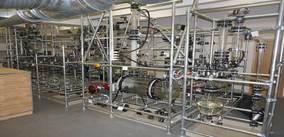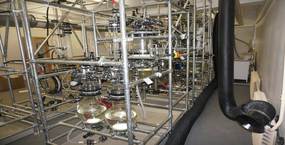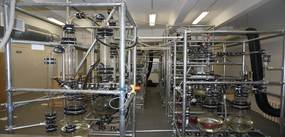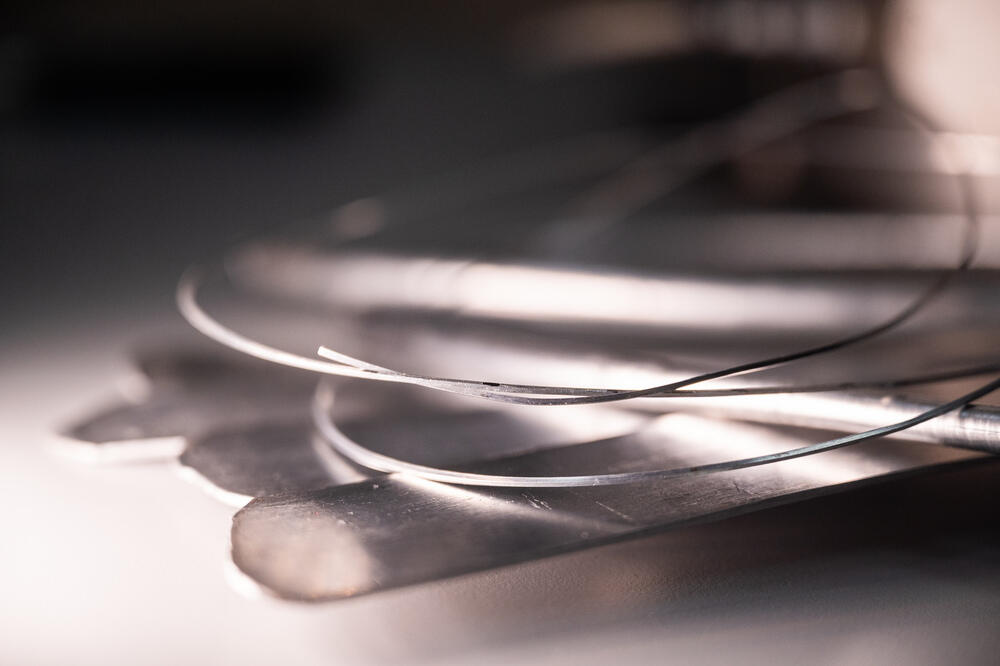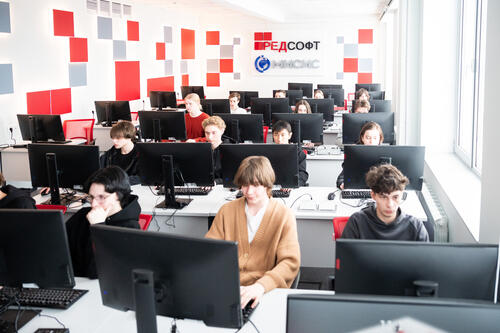In Russia, the production of lithium and its compounds has been started based on a developed and cheap technology.
The world`s first experimental technique of its kind, developed by NUST MISIS scientists, has helped make lithium compounds from poor ores two times as cheap as those mined from rich ores. The implemented technology can satisfy Russia`s lithium needs with its own reserves, allowing the country to get rid of poor-quality African and expensive Chinese raw materials.
The sphere of application of lithium and lithium compounds is vast: in chemical current sources and batteries based on them, as a coolant in small nuclear reactors (used on ships and submarines), as a source of neutrons in nuclear fusion reactions, as well as in ceramics, optics, lubricants, polymers, pharmaceutics, conditioners, aluminum alloys, and ultra-light product casting.
The problem is that there are no lithium-rich ores in Russia, even though it is not a rare metal — it is just dispersed in the ground. More than 70% of the commercial production of lithium is based in Chile, Bolivia, and Argentina in a form of saline deposits which composes the Atacama, Uyuni, and Hombre Muerto deserts.
There are reserves in Nevada (USA), Tibet, Brazil, Congo, and China — but these reserves don’t have an essential influence on the market. In Russia, however, the highest content of lithium is in mica, alongside deposits of rare earthly metals. Although, in theory, the mechanisms of the most effective method of extracting lithium from domestic ores is described by Vladimir Kulifeev—NUST MISIS Professor and Kurchatov`s student—in the 1960s, at the time neither technologies nor materials from which the processing equipment was made allowed for the implementation of this process at an economically valuable level.
That is why it is important to purchase already prepared lithium compounds, or to import the lithium-containing concentrate from The Congo or China. However, the quality of these raw materials is low, and long-distance transportation has additional costs.
Olga Krivolapova, a Candidate of Technical Sciences and an Associate Professor at the Department of Nonferrous Metals and Gold at NUST MISIS, has applied Professor Kulifeev`s theoretical developments to the lithium-containing waste of fluorite deposits (such as the world`s largest Voznesenskoye and Prigranichnoe, owned by RUSAL`s Yaroslavl Mining Company), forgotten by current lithium-ion sources. The NUST MISIS science team led by Krivolapova has developed technology for the acidulation of lithium-containing substances which turned out to be twice as cheap as existing analogues. The technique is now at the experimental polygon owned by the Yaroslavl Mining Company. The production process of battery-operated quality lithium (grade LE1) is planned to be launched at mine dumps of the deposits in Ussuri Krai and the Zavitinskyi mine fields (Chita Oblast), where in just 20 years time more than 40 thousand tons of lithium carbonate can be produced.
The most important fact helping to boost this technology’s success is that the technique operates on domestic raw materials: “We are working on a new production, which will allow [Russia] to completely abandon imported raw materials. The new technology will allow [Russia] to carry out the extraction and processing of lithium, and to obtain not only pure lithium but also valuable products — for example, lithium salt, depending on the needs of domestic industry. We are developing technical solutions for the processing of domestic raw materials, because we have designed and created a unique pilot-experimental-industrial technique. Currently, we are conducting lab research on the influence of technological factors on the acquisition of battery-operated quality lithium”, emphasized Olga Krivolapova, head of the project.
According to RUSAL`s experts, it is already realistic to speak about the possibility of taking approximately 1% of the world market of lithium and meeting the needs of domestic Russian enterprises with a higher quality product than from Congo, and a product up to two times cheaper than the Chinese imports.
“The work of the science team led by Associate Professor Olga Krivolapova, Candidate of Technical Sciences, demonstrates that not only fundamental, but also applied developments can find their application decades later. The promising technology for the production of lithium compounds, developed by NUST MISIS’s young scientists, has become a synthesis of research work from the
mid-twentieth century conducted by NUST MISIS Professor Vladimir Kulifeev, developments of the research team on the utilization of lithium-ion batteries, as well as a global achievement in the field”, said Alevtina Chernikova, Rector of NUST MISIS.
Work on the technology is being conducted at the request of a number of major Russian enterprises such as ROSATOM, RUSAL, TVEL Fuel Company, Battery Company RIGEL, ARMZ, Priargunsky Industrial Mining and Chemical Union, and others.
The implementation of this technology by enterprises is planned for

